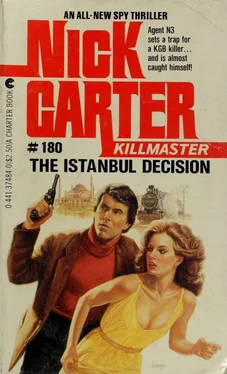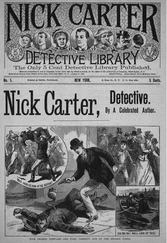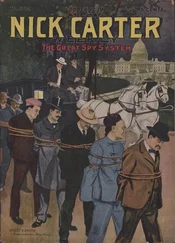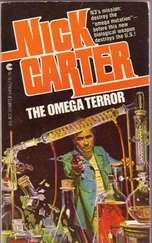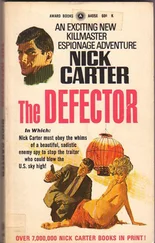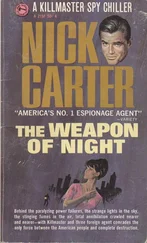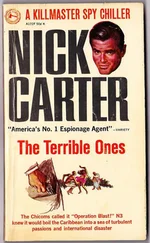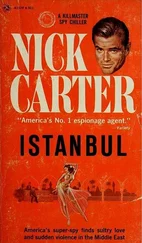"I have a job to finish in Budapest."
"Doctor, would you excuse us for a moment?" asked the commandant.
The doctor raised an eyebrow, then without a word walked to the sink, gathered up several instruments that lay in a tray beside it, and went out the door.
When he was gone, the commandant pulled his chair several feet closer to the bed. "I think you should know," he said in a confidential tone, "my superiors regard you as nothing more than a common assassin and would like to have you shot. And they would have sent me here to do just that if it weren't for the Soviets themselves. None of them seems to be able to determine where Comrade Kobelev stands in the pecking order. They are afraid to serve his cause and afraid not to. They are very confused, and as long as they remain so, we Hungarians will wash our hands of both of you. Kobelev is speeding out of the country right now, and you are incapacitated. Things work out well in the end, no?"
"No," said Carter resolutely. "There are two women aboard that train, American citizens, and my government is going to take it very much amiss if any harm…"
"Ach!" the commandant exclaimed harshly. "You have no rights here. You have all entered the country illegally. All except Miss Stewart, which I am told is her real name, and she is nothing but a spy masquerading as a Hungarian schoolteacher. You are all undesirable aliens, and we shall be glad to get rid of the lot of you!" He punctuated this last statement by snapping the ash from his cigarette onto the immaculate wooden floor, and for several minutes this ended the conversation.
They smoked. The commandant watched Carter, but Carter ignored him and stared at the floor. He was thinking of Cynthia and Roberta and his dwindling chances of rescuing them.
"You know," said the commandant finally, "it isn't that I dislike you, my friend. You are an impressive man, and I must admire your training. For instance, your Hungarian is very good, almost accent-free. And you have come a long way against formidable odds. The doctor tells me you've had several ribs cracked recently. Your capacity for punishment is astonishing. But I have a job to do."
"You don't like Kobelev any better than I do, do you?" asked Carter.
"What makes you say that?"
"It's true, isn't it?"
"I dislike the man, I'll admit it. He's a legend in the KGB. The stories they tell are frightening. Let me put it this way — I disapprove of his methods. To me he typifies the entire Soviet approach to government. Ruthless, power-for-the-sake-of-power. Altogether a despicable man. But one can't always choose one's bed partners in this day and age. A small country such as mine must be aligned with someone strong."
Outside, an engine started up. "What's that?" asked Carter.
"The helicopter to take you to Austria. I imagine a man of your extraordinary endurance is up to traveling."
The door swung open and the doctor rushed in. His hair was windblown, and behind him out in the barnyard the grass was being whipped flat by the wash from the chopper's big rotor.
"You can't move this man now!" he shouted.
"Why not?" asked the commandant calmly.
"Because his condition hasn't had a chance to stabilize. Move him now and you may kill him."
"Orders are orders, Doctor. I'm afraid our friend here is something of an embarrassment."
"You let me save his life. You don't expect me to stand by and let you kill him, do you? Give him twenty-four hours."
The commandant slowly shook his head.
"We are not like these Americans who believe in nothing but money. We have some appreciation for the value of a human life."
The commandant looked hard at Carter, considering. Finally he said, "Very well. Twenty-four hours. No longer. I'll leave the helicopter and crew on hand to take him back as soon as you say he's up to it." He opened the door, then turned and looked directly at Carter. "We are not barbarians," he said and went out.
The doctor came over and gently took the cigarette from Carter's fingers and dropped it with a hiss in a nearby water glass. "You must sleep," he said. "You'll need your strength."
"Can't I make anyone understand?" asked Carter plaintively. "The lives of two young women depend on…"
"Shh!" said the doctor harshly. "Sleep. I've bought you sometime. Hopefully enough to keep you alive. Don't ruin it by trying to do something foolish."
He pushed Carter back on the bed and pulled the blanket up under his chin. Carter stopped fighting. He was afraid the doctor would give him something to make him sleep, and he needed his thinking sharp. The doctor pulled the crude homespun curtains over the low windows and crept to the door. He opened it, creating an oblong of light, and stepped out. Behind him, staring in, wide-eyed, was the boy.
* * *
When Carter's eyelids next fluttered open, he found himself surrounded by a pale yellow light. The boy was standing over him holding up a chimneyless kerosene lantern and staring. When he realized Carter was awake, he gave a little gasp of fright.
"Don't be scared," Carter whispered. "What's your name?"
"Milos," the boy replied softly.
"Milos. Ever been to Budapest, Milos?"
The boy nodded.
"I'll bet you'd like to live there someday."
The boy nodded again, vigorously.
"I'd like to get to Budapest, Milos. I have some friends there waiting for me. But these men won't let me go. I have to go, and they won't let me. I need help, Milos. Your help, if I'm ever going to get there in time. Do you like knives, Milos?"
The boy nodded again and produced an ancient jackknife from his pocket. It was Swiss but had been badly abused by one of its owners. Only two blades remained, one of them rusty and the other badly chipped. And yet, in the way he handled it, Carter could see it was worth its weight in gold to the boy.
"I'll bet no one else around here has a knife as nice as this." He took it from the boy and held it up to look at it. "Two blades," he said appreciatively, pulling out the rusty one and running his finger along its edge. "Where did you get it?"
"Traded for it," said the boy.
Carter nodded sagely. "I have a knife, too," he said, "even nicer than this. I'd be willing to give it to someone who helped me get to Budapest."
The boy said nothing.
Carter took him earnestly by the arm. "My clothes, Milos. And my weapons. The soldiers have them outside. Bring them to me and I'll give you as fine a knife as you've ever seen, I promise you."
The boy's gaze remained level, and Carter wasn't sure he'd understood. He thought of rephrasing it somehow but decided it was no use. Wilhelmina and Hugo were most likely locked away in a police vault miles from here by now. He fell back on the bed and sighed. The boy reached over, retrieved his knife, and put it back in his pocket.
The door swung open suddenly, and the peasant woman appeared with a bucket in her hand. "Milos!" she shouted. "Get away from there!"
The boy backed away guiltily.
"Go on now. Go out and play. Leave the poor man alone." She flapped her apron at him as though she were herding chickens. The boy hurried to the door, opened it, but before going out he cast a hasty glance back at Carter. Then he ran off, and the woman slammed the door behind him. "Ruffian," she exclaimed, shaking her head when he was gone.
She turned and poured the contents of the bucket into a large kettle on the stove. Then with a long match she lit a fire and fed it wood a few pieces at a time. There was something in her movements, the slow, ponderous way she worked, that was relaxing to watch. When the kettle was steaming, she picked it off the stove and brought it over beside the bed. "I have to change those dressings," she said.
Slowly she began to undo the gauze bandage the doctor had put on earlier. The wound looked ugly, but her calm, purposeful expression never changed. Gently she dabbed at his shoulder with cotton and water from the kettle. "I'm the horse doctor around here," she said. "That's why they brought you to me. Show me a body can mend a horse, and I'll show you a body can fix almost anything." Her country accent had a delightful lilt.
Читать дальше
